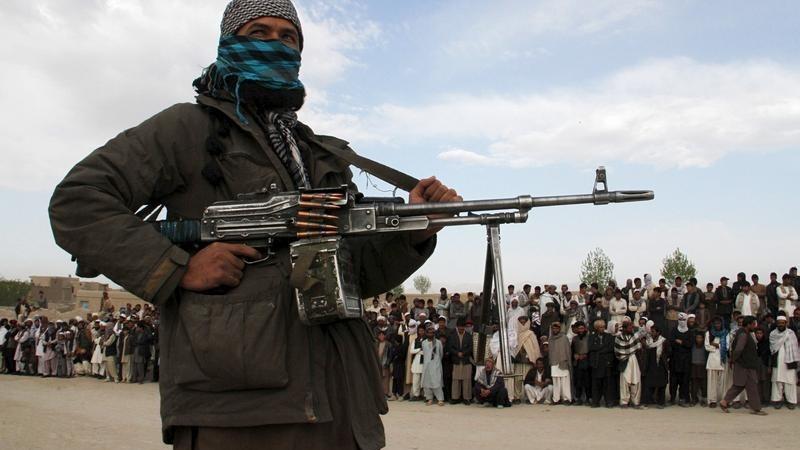The Financial Action Task Force (FATF) removed (October 21) Pakistan from its “grey list” after more than four years.
The multilateral watchdog said Islamabad would continue its work to further improve systems to combat terror financing and money laundering.
At the conclusion of FATF’s two-day plenary meeting in Paris, the body’s president, T. Raja Kumar of Singapore, announced that Pakistan was being taken off the grey list in line with a consensus decision by the watchdog’s 39 member countries.
The reforms carried out by Islamabad were good for the security and stability of Pakistan and the region, he said.
While Pakistan may have exited from the ‘Grey List’, its history of support to terrorist individuals and entities shows that it is unlikely to reform itself into a good cop overnight!
A recent article by Aparna Rawal for South Asia Voices (October 17) informs that the deep state in Pakistan remains synonymous with an intricate network of terror, narcotics and funding which span the globe. At the forefront of Pakistan’s operations is D Company and Haqqani Network.
Most of these crime syndicates thrive through extortions, violence, kidnappings and even assassinations while re-routing funds through formal channels like charities or legitimate business enterprises. A quick glance at the past shows how the deep state in Pakistan used money laundering for terror and narcotics trading in its global operations.
Pakistan’s Inter-Services Intelligence (ISI) is known to support various entities, terror outfits or rackets which would benefit their well-articulated “Gazwa-i-Hind” (bleed India with thousand cuts) strategy against India and which will also allow them to exert their influence in the South Asian regions by all possible means.
This is also one of the reasons why Dawood Ibrahim proved to be effective. To be indispensable to the ISI, he funded ISI-funded terror organizations, while in exchange he received ISI protection.
This arrangement served the twin purposes, of firstly, providing a front for ISI’s dealings with terror outfits and secondly, for moving funds required to covertly support the outfits.
Since 2016, the ISI has been aggressively and covertly operating in activities to destabilize India. There have been many Pakistani sleeper cells active in India, with the D Company’s affiliations.
Arms transportation and terror funding are becoming more evident through the hawala channels. Several ISI-trained components are being tasked to carry out reconnaissance missions against India.
Recently, the D Company-ISI hand was exposed through various crackdowns on terror modulesconducted by Indian security agencies.
On September 22, an ISI agent Lal Mohammed was shot dead in Nepal. He delivered counterfeit Indian currency from Nepal, Pakistan and Bangladesh to India.
Lal used to provide logistical support to ISI and had links to Dawood Ibrahim and his D Company.
Apart from D Company’s own terrorist activities, the organization has maintained relations with other terror outfits and even made donations to them through their front companies.
On September 26, Riyaz Bhatti was also arrested in an extortion case.
Besides, henchmen employed for extortion and other criminal activities, Dawood has several agents who make investments on his behalf worldwide.
Rasheed Saeed is a known D Company agent who reportedly handles the revenues coming to the company under Chhota Shakeel.
Saeed’s cover has been managing director of a Mumbai-based events company that is known for hosting promotional events for Bollywood films.
Tiger Memon continues to be a partner in a firm that deals in steel exports. Recently, five of D Company’s operatives were arrested by the Mumbai Crime Branch, Anti Extortion Cell.
This occurred, months after Dawood’s close aide, and brother-in-law of Chota Shakeel, Salim Fruit was arrested in August 2022 by the NIA. He was accused of extorting Rs 62 lakh.
In this context, it is important to mention that most cases relating to money laundering have their origins in the covert support provided to the Mujahideen in Afghanistan, by Pakistan’s ISI.
The informal channels stem from the mutual understanding for support of the mujahideen cause, which was not limited to a particular region, but extended to a global network for waging jihad.
For several years, Pakistan’s ISI funnelled money to the Mujahideen in Afghanistan with the help of the Bank of Credit and Commerce International, founded by Agha Hasan Abedi, a Pakistani businessman.
Its primary purpose was ostensibly to fund armed groups abroad.
The Bank of Credit and Commerce International was also responsible for transferring funds and arms to the Iran-Contra arms deal.
From the 1970s to the 1980s, Bank of Credit and Commerce International had set up a quid pro quo approach with all their clients. It would provide unsecured loans to its wealthy clients in exchange for access to the global markets. Their clients included a Saudi financier who received a loan of $500 million and in return was entrusted to buy a controlling interest on Bank of Credit and Commerce International’s behalf in two American banks.
The organization became famous for providing unsecured loans to wealthy investors in the Middle East.
Iraqi leader Saddam Hussein, another client of BCCI, was able to utilise their service to transfer most of his oil revenue to investments globally.
This also included the clandestine funding of politically volatile projects such as Pakistan’s nuclear programme in the 1980s.
In June 2018, the FATF had placed Pakistan on its list of countries under increased monitoring, or the so-called grey list, for its failure to tackle terror financing, especially the activities of UN-designated terror groups such as Lashkar-e-Taiba and Jaish-e-Mohammed.
Pakistan was given two action plans with 34 action items to strengthen its ability to counter both fund-raising by terrorists and money laundering. FATF action against Pakistan demonstrates the urgent global requirement to cut terror funding to contain terror activities in the South Asian region.
The lesson learnt is that while Pakistan has exited the grey list, hidden below the surface, it is business as usual for the deep state. Nothing is likely to ever change in Pakistan!
–IANS

